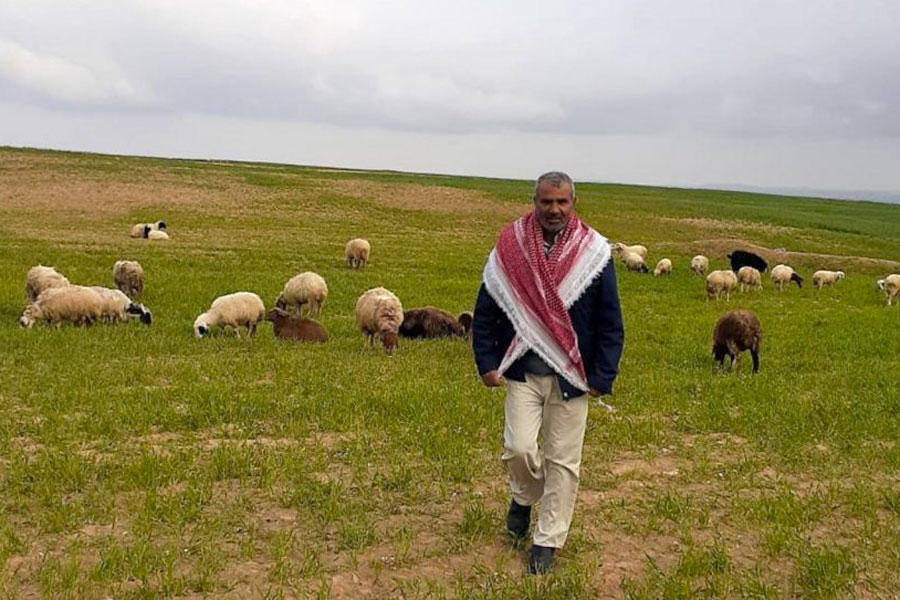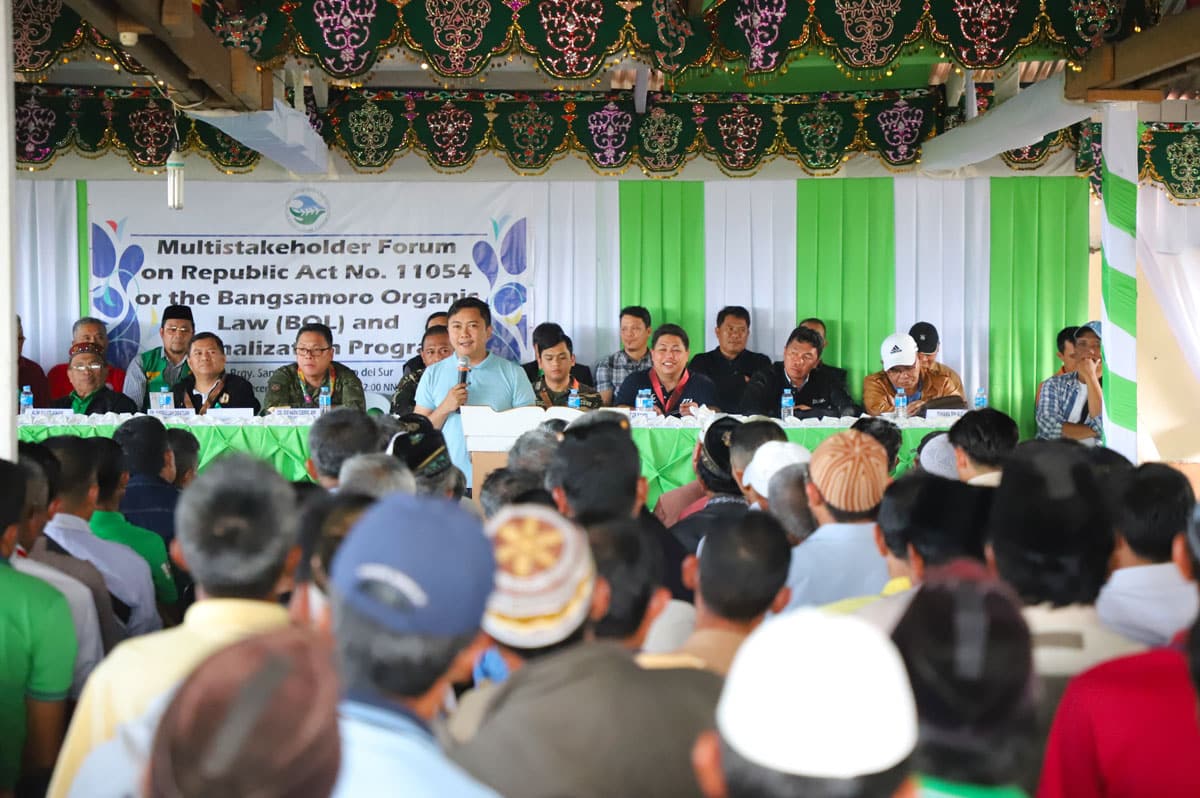Responding to COVID-19 in the Bedouin Community

As a minority group within Israel, the Bedouin Community has had a long history of strife in dealings with the Israeli government. During these dire times of Covid-19 the government has failed in many areas to support Negev Bedouins through funds resources and information. As a result many families have been facing unemployment, health and communication concerns. Students who do not have computers can’t do school from home households with over ten people are having trouble with social distancing and unrecognized villages are unable to maintain a sanitized environment due to limited water.
A New Dawn in the Negev has been taking action in three areas:
- Established an emergency Covid-19 Hotline for receiving calls from those in need of urgent care and assistance;
- Proactive outreach through our call-center, managed by our staff and volunteers, to reach out to those that might feel apprehensive or afraid to cross social norms; and
- Building an online platform, still in process, that will generate opportunities to share initiatives, hold discussions and promote peer to peer volunteer ideas.
Through all these approaches we provide both structural and culturally-sensitive opportunities to express their needs and find responses based on solidarity.

[quote]A New Dawn is actively involved in the fight against Covid-19, and our work is effective because we have trust and local knowledge earned over years of experience working with vulnerable communities.[/quote]
We are more than happy to share our knowledge and experiences and coach other organizations who are facing similar situations and obstacles with social-governmental tensions. By working together, we can become stronger and more equipped for our work indivually and collectively. A New Dawn in the Negev is always seeking new connections for resource building and sharing.
A New Dawn’s biggest obstacle now is infrastructure and resources for our current endeavors. We’re working on a phone switchboard, computer tablets, hot line operating software and other activities, as well as an Internet platform via WhatsApp to build online community, and subscribing to an existing platform while adapting to the specific needs of the Bedouin company and training a limited team of operators.

We need to urgently respond to this crisis today, but we also have to rethink our work for the future.
Even before the coronavirus hit our community, our organization was often short on resources, facing neglect from the government, and having to deal with already high unemployment rates and poverty. Now the Coronavirus has given us no choice but to quadruple our efforts and prioritize our programs. We have to safeguard our infrastructure and make it adaptable to the new social norms of social distancing. Before the crisis, meeting people and engaging with them was paramount. Now, we have to apply all our work to a virtual world.
For our community as a whole, the crisis has impacted our way of life and culture. Now more than ever, cultural competency plays a role in the future of our people; we must not forget who we are.
During this time, we have grown virtually connected with our world more than ever before. Our experiences are in need of being shared to others through this heightened medium of communication. Connecting to my network of Global Fellows is critical in this time of physical isolation and the Goldin Institute is definitely one of our greatest partners. We wish to strengthen our ties with all the alumni and otherpartners to build a better future together.
READ MORE:
- https://fathomjournal.org/fighting-back-against-covid-19-in-the-bedouin-community/
- https://www.makorrishon.co.il/news/213227/
- www.b7net.co.il
- https://www.facebook.com/watch/?v=218873629470984
The Promise and Peril of Working with Governments: A Global Gather/Chicago Peace Fellows' Roundtable
Last month, Jamal Alkirnawi and Lo Ivan Castillon led a discussion on March 16 for Global Gather and Chicago Peace Fellows entitled “The Promise and Peril of Working with Governments,” about the challenges and opportunities non-governmental organizations (NGOs) can face when seeking to partner with states, and local officials.
Both members of the inaugural Global Gather cohort from last summer, Jamal Alkirnawi leads New Dawn in the Desert, a Bedouin-Jewish organization in Negev Desert, while Lo Ivan Castillon is based in Cotabato City in the province of Maguindanao in the Philippines. Lo Ivan is a Peace Program Officer in the Office of the Presidential Adviser on the Peace Process.

At the outset of the conversation, space was created for attendees from around the world to share updates and personal feelings about the emerging, world-wide COVID-19 pandemic and its impact in their respective communities. Many were still adjusting to government-sanctioned “shelter-in-place” orders and the reality of physically distancing in crowded areas.
Jamal led the conversation with a detailed, highly informed PowerPoint presentation entitled “Head-On with the Governor.” In it, he identified three primary models of NGO engagement with governmental entities: 1) Nonprofits as supplements to government; 2) Nonprofits and government as complements; and, 3) Nonprofits and government as adversaries. While offering concrete, sometimes personal examples of the challenges and downsides of NGO-government relationships, Jamal was careful to highlight the upsides for both sides if certain frameworks principles are adhered. As he noted, NGOs may often be at odds with elected officials and government agencies over resources, influence, strategic approaches to shared challenges, but they don’t have to be. He pointed out what he sees as the “Four C’s” of NGO-Government Relations, including cooperation, complementarity, co-optation, and confrontation, with the first two being the preferred frameworks on which engagement should be built.
As a “Peace Program Officer” in the Office of the Presidential Adviser on the Peace Process, Lo Ivan is well equipped to speak from the perspective of governmental agencies’ experience with NGOs. He’s also worked closely with Global Gather Fellow Susana Anyatin on creating access to clean water in the most rural, isolated areas of the Philippines and understand the stresses on community-based efforts.
GATHER Alumnus Jamal Alkirnawi Honored as Torch Lighter

GATHER Alumnus Jamal Alkirnawi, CEO of a New Dawn in the Desert, a Bedouin-Jewish organization in Rahat, Israel, was recently named as one of 12 prominent people in the Negev Desert, a sparsely populated, but culturally diverse and vibrant region of southern Israel. Along with an actor, an oncologist, a choreographer and others, Jamal was honored in a feature story by the Yediot Aharonot’s Be’er Sheva edition as a person who deserves to light a torch on Israel’s Independence Day. Every year, twelve prominent Israelis are assigned to be part of a national torch-lighting ceremony, and the newspaper’s nominations for prospective torch-lighters have won significant attention in the Negev and beyond.
In an interview, Jamal said he appreciated the newspaper’s recognition on multiple levels, as a Bedouin and as a resident of a region beset by poverty and attendant issues, but most of all as someone who has striven to forge links with Jewish Israelis. Bedouin are an Arab, mostly Muslim community with a nomadic heritage who make up a quarter of the residents in the Negev, and Jamal’s organization is based in Rahat, a town composed of settled Bedouin families. Like other Arab citizens of Israel, Bedouin face frequent discrimination in education and employment, and Jamal said the show of support from the national newspaper chain was particularly meaningful to his work demonstrating the important role his community is playing in the national scene.
[quote]It’s good that it shows that in the periphery of Israel, there are a lot of people who working to make Israel a better place to live. -- Jamal Alkirnawi[/quote]
Jamal continued, “I feel myself very much Israeli. I can’t be anything else, but I sincerely hope that my work will contribute to the whole of Israeli society.”
A New Dawn for the Negev offers a range of educational, development and exchange programs for youths as well as adults, but concentrates its efforts on those with the toughest challenges, including families in crisis and youths who have dropped out of school. In this regard, Jamal said the recognition for New Dawn’s efforts will also be encouraging to those he works with.
“They don’t always feel the state is there for them,” Jamal explained.
Jamal said the article has already led to an interview with channel I-24 and hundreds of congratulatory e-mails and phone calls.
“I have always worked for the opportunity to lead our young people to a better place in society, and my dream is the full integration of Bedouin society into Israeli society and to completely break the expectations of people who claim that it is impossible,” Jamal told the newspaper.

